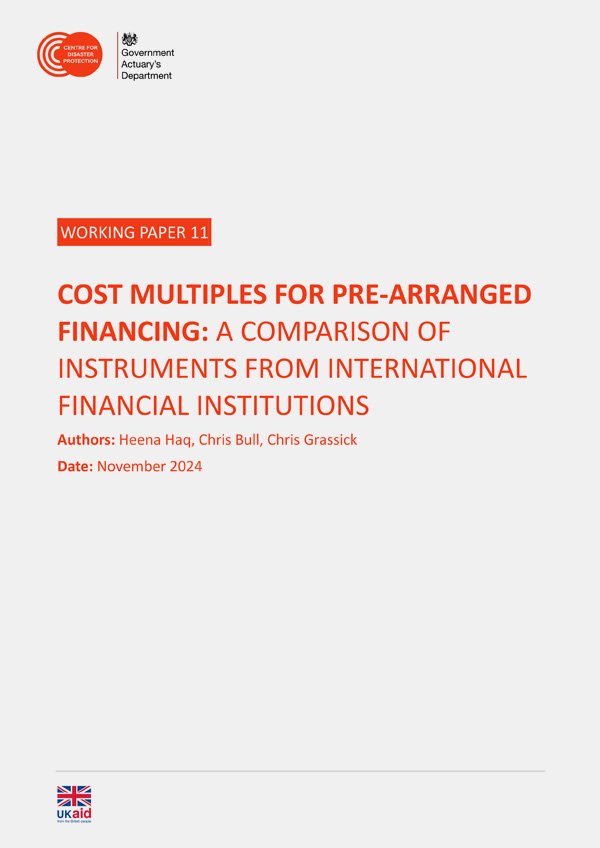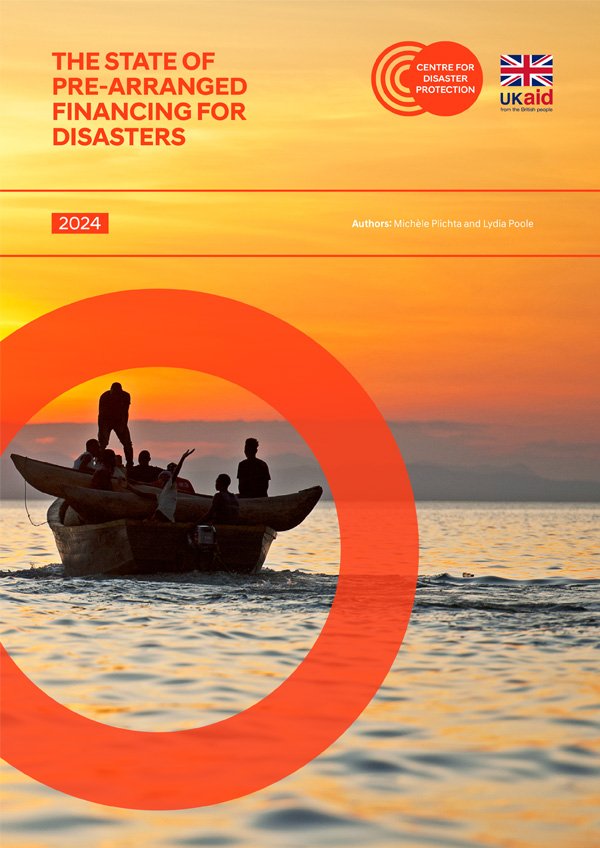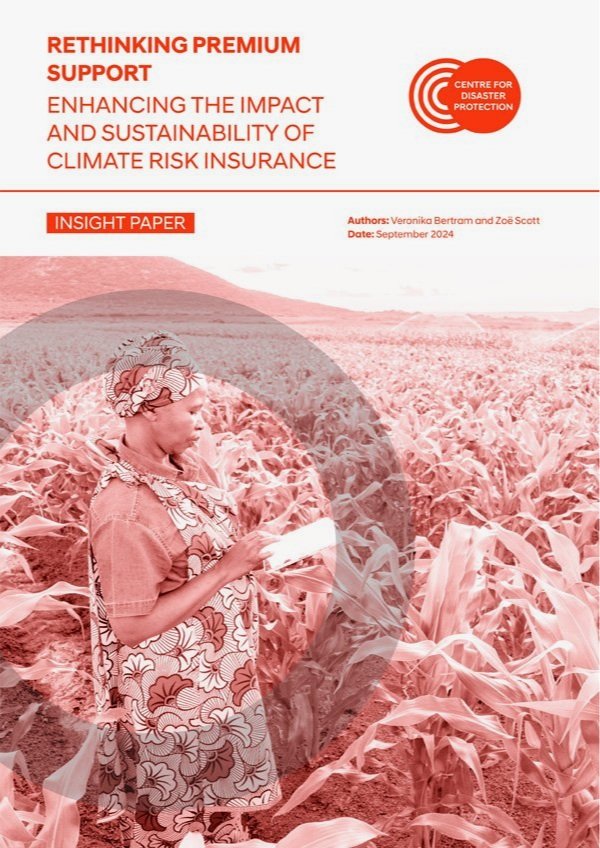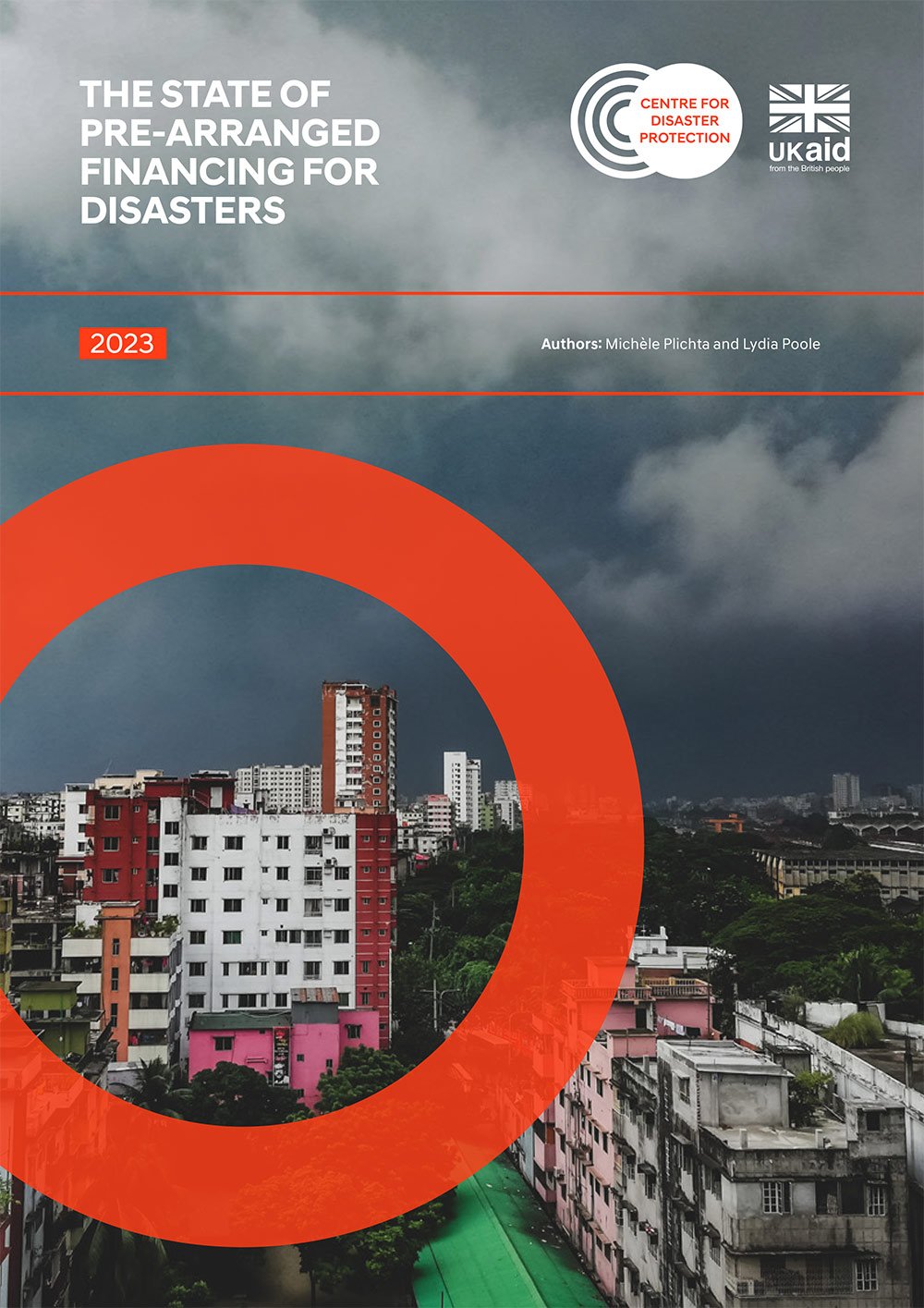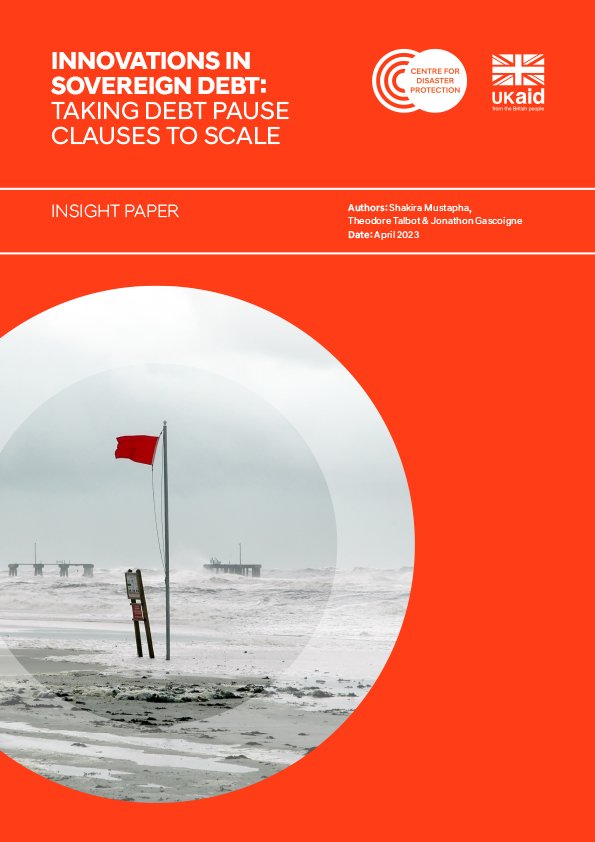PREDICT AND PROTECT: G7 SOLUTIONS FOR A NEW APPROACH TO CRISIS RISK FINANCING

The Crisis Lookout Coalition came together in 2021 and 2022 to convene policy dialogues in partnership across sectors and geographies to successfully advocate for key political and funding commitments at G7 and at COP26. This paper sets out detailed and practical proposals for how the G7 could better protect vulnerable communities by better predicting and preparing for disasters.
RELATED PUBLICATIONS
With growing fiscal constraints, governments and development partners face increasing pressure to maximise the impact of every dollar spent. To address this, the UK Government Actuary’s Department and the Centre for Disaster Protection developed an analytical framework to evaluate the cost-effectiveness of various instruments offered by international financial institutions. This working paper presents a framework that compares contingent loans, grants from multilateral development banks, catastrophe bonds, and insurance provided through regional risk pools. The analysis reveals that while some instruments are more cost-effective for frequent events, others perform better for less frequent, high-impact shocks.
The State of Pre-arranged Financing for Disasters 2024 is a unique source of data and analysis on the level of effort of international development donors to support a shift towards arranging financing for disasters, before shocks happen. In its second year, the Centre’s annual analysis of trends and patterns in international development financing for pre-arranged financing for disasters also presents the latest available data on coverage and payouts provided by these instruments.
This insight paper aims to support policymakers and practitioners as they seek to scale up financial protection against climate-related shocks through sovereign insurance solutions. It explores the complexities of international premium support and identifies core problems with current approaches to the allocation and design of premium subsidies. It proposes some basic but vital shifts needed in the way premium support is designed, allocated and provided to create a more inclusive, transparent and sustainable approach.
Planning and preparing for shocks pays. Prearranged Financing (PAF) for disasters has the potential to significantly increase the predictability, speed and effectiveness of responses to shocks. Currently, it is unclear how much pre-arranged finance is required to protect crisis-vulnerable people against risk, how much coverage there is in place, and how far we are from achieving adequate coverage, targeted to the right places, for those people most at risk. This data-led report collates the best available data to start to assess and monitor annually the state of pre-arranged financing supported with international development financing in low-and middle-income countries.
This insight paper provides an overview of the key features of debt pause clauses, also known as climate resilient debt clauses. The paper highlights issues that may affect the incentives of sovereign governments and creditors to adopt them. It builds on confidential advice to the UK-chaired Private Sector Working Group by the Centre for Disaster Protection and has been informed by a private roundtable discussion with key legal, sovereign finance and development experts convened by the Centre in March 2023.

